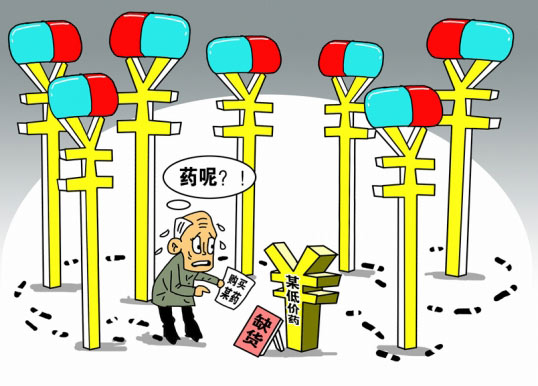This is NEWS Plus Special English. I'm Mark Griffiths in Beijing. Here is the news.
Chinese hospitals have reported shortages of some cheap but essential medicines, due to alleged monopolies on raw materials.
According to a survey of 40 major hospitals across China, 340 of more than 500 types of essential medicines are in great shortage.
With demand for cheap medicines high and production shrinking, a price surge in raw materials has made them almost inaccessible.
A representative of a pharmaceutical company in the central Henan Province says the market has been manipulated by manufacturers; and the more scarce the raw material, the more likely it is to be manipulated and monopolized.
Many of the scarce medicines are essential for treating common diseases. Several other medicines facing shortages are used specifically to treat children.
The bidding mechanism for obtaining pharmaceutical sales licenses is another factor blamed for curbing production of affordable drugs. Under the current system, a company just needs to offer the lowest price in order to win a bid, with other factors ignored.

This is NEWS Plus Special English.
Beijing, home to a number of top universities, will spend 200 million yuan, roughly 32 million U.S. dollars annually to promote the study of Marxism in colleges.
According to a guideline issued by the city government, Beijing will encourage reforms in Marxist research to build "socialist universities with Chinese characteristics".
Marxism is a compulsory course in college and includes modern Chinese history and political structures, but is underfunded and perceived as indoctrinatory, leading to students' dissatisfaction.
Schools and teachers will be encouraged to base the teaching of Marxism more on practices and real-life experience. It also promised rewards for high-performing young teachers and professors, and better funding for their projects.












